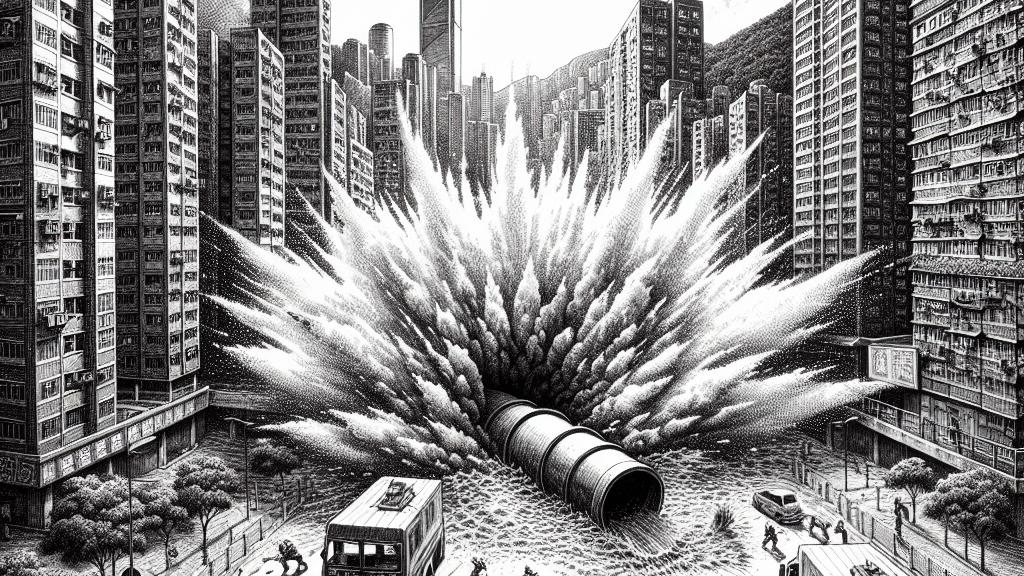Tung Chung Residents Face Water Supply Disruptions Due to Pipe Burst
Overview
- A substantial pipe burst disrupts water supply for tens of thousands in Tung Chung, Hong Kong.
- Emergency response teams deploy water wagons and tanks to assist affected residents.
- Water supply is set to gradually resume by Monday morning, offering hope and relief.

Incident Overview
On the night of November 3, 2024, a significant event rocked the community of Tung Chung, Hong Kong. A 1.2-meter diameter pipe burst, unleashing a torrent of water and leaving tens of thousands without access to fresh or flushing water. The repercussions were immediate and widespread, affecting not just local residents but also patients in hospitals and guests in hotels—such as the Sheraton and Novotel. As the clock struck midnight, taps ran dry and the Water Supplies Department sprang into action, issuing an emergency alert that underscored the urgency of the situation.
Quick Response and Community Support
In a demonstration of efficiency, the Water Supplies Department mobilized water wagons and temporary tanks, swiftly distributing much-needed water to various parts of Tung Chung. Areas like Hei Tung Street and numerous housing estates benefited from this quick response, which helped mitigate the potential chaos that could have ensued. The community rallied together, sharing water resources among neighbors, and supporting each other through a time of uncertainty. By announcing an expected water supply resumption by Monday morning, the authorities provided a glimmer of hope at a critical juncture, allowing residents to breathe a sigh of relief amidst the strains of the situation.
The Need for Sustainable Water Management
This incident starkly highlights the critical importance of sustainable water management in urban environments. Hong Kong, which has been innovatively using seawater for flushing since the late 1950s, exemplifies how cities can preserve fresh water. With about 320 million cubic meters of seawater being utilized annually for this purpose, the city effectively conserves a significant amount of fresh water—approximately 20% of its total supply. Furthermore, ongoing efforts to expand the seawater supply network and recycling initiatives are embodiments of Hong Kong's commitment to sustainability. By proactively addressing water resource challenges, the city not only secures its future but also inspires its residents to engage in conservation practices, safeguarding this vital resource for generations to come.

Loading...